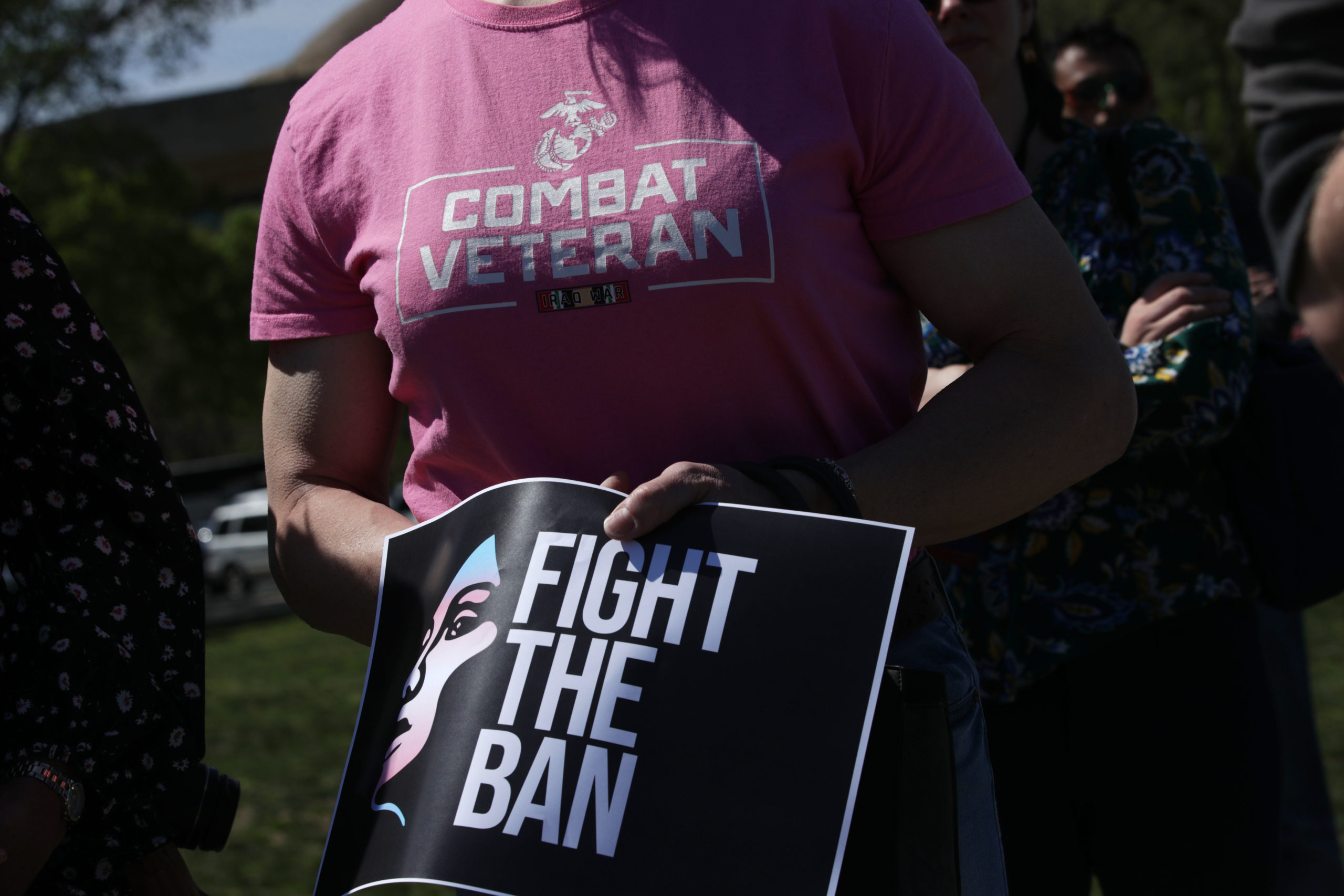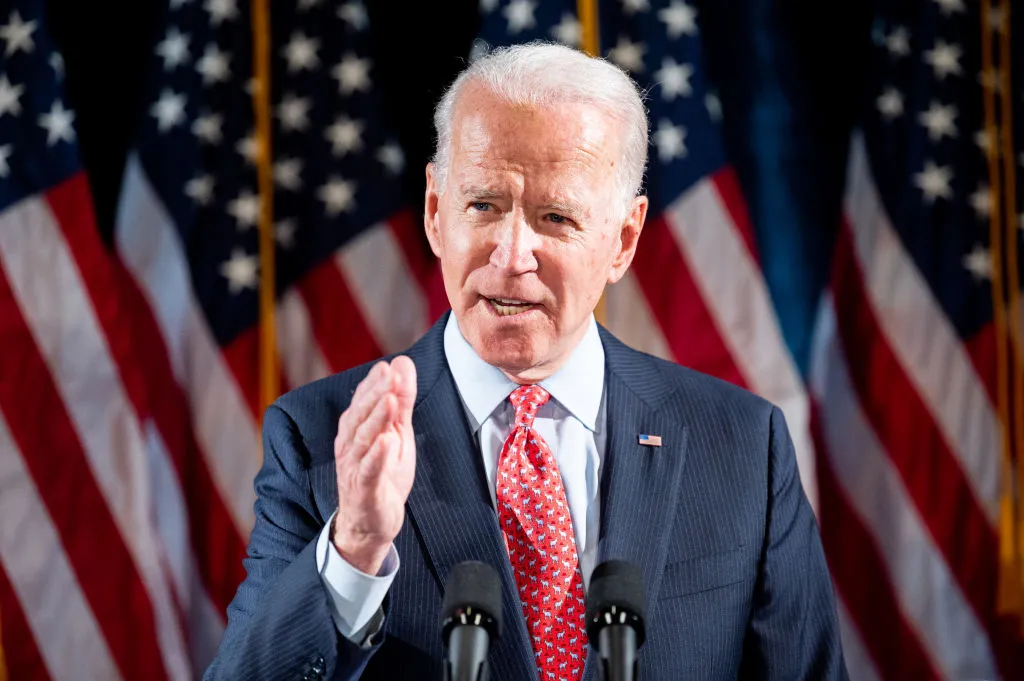Democrats demand end to Donald Trump’s abhorrent trans military ban once and for all in wake of historic Supreme Court ruling

Army Sergeant Shane Ortega laces up boots before posing for a portrait at home at Wheeler Army Airfield on March 26, 2015 in Wahiawa, Hawaii. (Kent Nishimura/Getty Images)
Democratic lawmakers have pressed for an end to Donald Trump ‘s ban on transgender people serving in the military, in wake of the Supreme Court’s landmark ruling on LGBT+ civil rights protections.
In its ruling last month, the Supreme Court made clear that anti-discrimination protections enshrined in the 1964 Civil Rights Act also protect people from discrimination in employment based on their sexual orientation or gender identity.
LGBT+ activists are hopeful that the ruling means that days are numbered for the ban on trans people serving in the armed forces, which was imposed in the wake of an infamous Trump tweet-storm in 2017.
Trump administration warned of ‘certain defeat’ over trans military ban
In a letter to Defense Secretary Mark Esper and Attorney General William Barr published Wednesday, Democrats in the House of Representatives urged the Trump administration to “immediately” eliminate the ban and cease resisting court action on the issue in the face of “almost certain defeat.”
The letter states: “This policy denies transgender people the ability to enlist in the military and puts transgender troops at risk of being discharged for living openly and authentically.
“The Bostock decision unambiguously clarified that Title VII’s prohibition against discrimination on the basis of sex includes protections for LGBTQ workers.
“Justice Gorsuch wrote ‘[t]he statute’s message for our cases is equally simple and momentous: An individual’s homosexuality or transgender status is not relevant to employment decisions. That’s because it is impossible to discriminate against a person for being homosexual or transgender without discriminating against that individual based on sex.'”
Noting the four ongoing lawsuits challenging the ban working their way through the court system, the letter adds: “The US Supreme Court’s ruling in Bostock will provide significant weight to those already substantial claims: the principle announced— that gender-identity discrimination is discrimination ‘because of sex’—applies equally to claims under the Constitution.
“Prolonging the litigation in the face of almost certain defeat, and thereby prolonging the existing policy, will continue to inflict serious harm on transgender people seeking to serve our country and on those already serving while living in the shadows, enduring the dignitary harm of being told they’re a burden.
“This policy is an attack on transgender service members who are risking their lives to serve our country and it should be reversed immediately.”

Democratic lawmakers joined activists to rally against the transgender military service ban. (Alex Wong/Getty Images)
The White House declined to comment on the letter, according to forces outlet Stars and Stripes.
The letter, spearheaded by Washington Democrat Suzan DelBene, is signed by 113 Democratic members of Congress, including every single out LGB House lawmaker – David Cicilline, Angie Craig, Sharice Davids, Sean Patrick Maloney, Chris Pappas, Mark Pocan and Mark Takano. There are no out transgender people elected to the House of Representatives.
Joe Biden has already vowed to immediately scrap trans ban
Presumptive Democratic presidential nominee Joe Biden has already pledged to scrap the ban if elected in November.

Joe Biden has vowed to strike down the trans military ban (Michael Brochstein / Echoes Wire/Barcroft Media via Getty Images)
His policy plan makes clear: “Every American who is qualified to serve in our military should be able to do so—regardless of sexual orientation or gender identity and without having to hide who they are.
“Biden will direct the US Department of Defense to allow transgender service members to serve openly, receive needed medical treatment, and be free from discrimination.”

